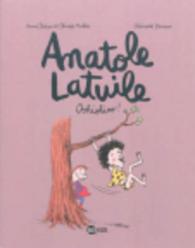Full Description
This groundbreaking book offers a unique collection of Indigenous and non-Indigenous approaches to decolonizing international development.
The world is facing enormous challenges, from ever-growing global inequality to climate change to the continuing fallout from the Covid pandemic. It is becoming increasingly clear that the origin of these challenges lies in the economic models and imperial lifestyles perpetuated by the Global North. In order to find new answers to the world's biggest challenges, then, it is necessary for the Global North to acknowledge Indigenous knowledge systems as unique and legitimate epistemologies and to engage in dialogues with them.
This collection brings together contributions from Indigenous and non-Indigenous authors to promote that dialogue. It provides a unique, rare forum for discourse between the expressive potentials of differing world views, and ultimately, for developing cooperation in the terms of Eisenstein's notion of interbeing, which counteracts the "History of Separation" between nature and culture and between Global South and Global North. What emerges is a path forward towards a new, interwoven modernity characterized by an embrace of separate, but mutually constitutive, ways of knowing.
For its wide topical and geographic breadth, and for its bringing together of Indigenous and non-Indigenous scholars around the world, this book is a must-read for researchers and students interested in indigenous studies and decolonial approaches to international development.
Contents
Introductions
1. Introduction - On the Decolonization of Dialogues, Karsten Kiewitt
2. What is Native Science? Greg Cajete
i. Dialogues
3. To Know from Within, Benno Glauser
4. To be Open for Constructive Strangeness: Experiences with Intercultural Knowledge Exchange in Development Cooperation and Science, Peter Strack
5. Embodied Knowledge: Decolonizing Philosophy by Turning to the Nature that We Are, Barbara Schellhammer and Stan Wilson
6. Perhaps we Didn't Need a Bridge: In Dialogue with Indigenous Mathematics, Edward Doolittle & Amber Hughes
7. Western and Indigenous Knowledge Systems: Attainment of the Sustainable Development Goals and the Umunthu Developmental Approach, Chance Chagunda
8. Kitheka Ki Matu: A Forest has Ears, Mark Lawrence
II. Challenges
9. Conceded Land Rights, Indigenous Territoriality, and Cooperation: Contradictions and Challenges, Volker von Bremen
10. Spirited Five Fingers Model: A Way of Reconnecting to the Spirit of Reciprocity in Social and Community Work, Ksenija Napan
11. Mobilities in the Global South and New Circuits of Affects, Maria do Carmo dos Santos Gonçalves
12. Indigenous Social Security Systems for Endogenous Social Development in Southern Africa, Ndangwa Noyoo
13. Indigenous in Europe: The Challenge in Bringing back Livonian, Valts Ernštreits & Gunta Klava
14. The Hijab and Faith: Fashion and modesty, Samira Adel Osman
III. Perspectives
15. Thirty Years of Democracy in South Africa: Reflecting on Social Work and Climate Change Challenges Through Ubuntu Lense, Kefilwe Johanna Ditlhake
16. Decoloniality as Total Disentanglement with Modern Capitalist and Neo-Liberal Complex: Social Work Perspective, Mbazima Simeon Mathebane
17. Indigenous Youth and the Recomposition of Community Life: Some Experiences in Oaxaca, Mexico, Eduardo Bautista Martínez & María Leticia Briseño Maas
18. 'Not About Us, but With Us!' Perspectives of Insurgent Research with Children of the Global South, Manfred Liebel
19. From alternative epistemologies to alternative aesthetics. A plea for a decolonial environmental aesthetics, Werther Gonzales León
20. Buen Vivir and Sustainability: Relation Between Indigenous Knowledge and Western Concepts, Ronald Lutz
Conclusion
21. Decolonising Knowledge, Ronald Lutz
Bibliography
Index








